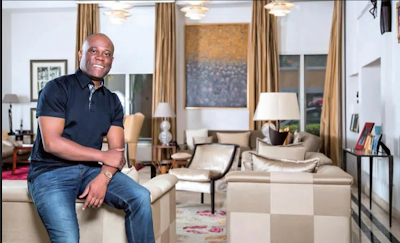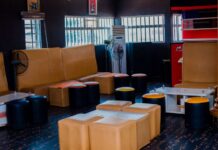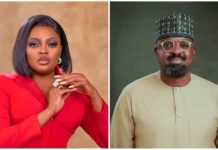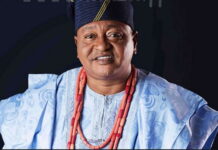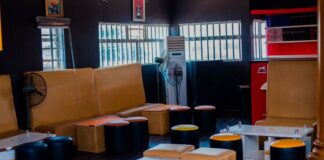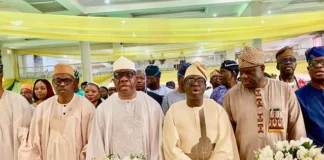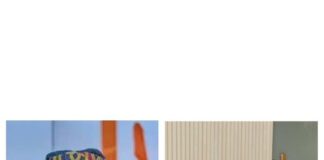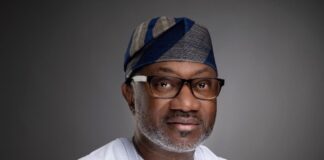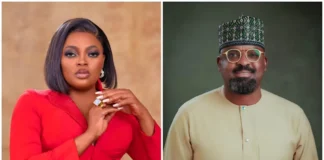For many billionaires, art collection is a passion as it is also a valuable asset. Herbert Wigwe, the Group MD/CEO of Access Bank belongs to this rarefied circle. A passionate lover and collector of timeless and priceless indigenous and foreign artworks, those who have been to his Lagos office and Ikoyi and Cape Town, South Africa, homes, say they are replete with a vast array of artworks he owns. This self-indulgent love for arts has also seen Access Bank, under Wigwe’s stewardship, supporting and sponsoring several art initiatives in Nigeria and beyond.
Billionaires all over the world have different interests and lifestyle choices. What gives one the kicks will not necessarily tickle the fancy of another. For some, it is dressing to the nines in expensive ensembles, globetrotting, high-end cars, and other such toys and things that make life and living worthy and worthwhile.
For others, like Herbert Wigwe, the CEO of Access Bank, it is something more noble and elevated. Whilst he is not found wanting in living the life that his illustrious career has bequeathed him, Wigwe is a huge collector of masterpieces and rare paintings. In his gilded but guarded world, collecting artworks of varying hues and nuances occupy a pride of place. He loves his artworks like he loves life and banking. And his eyes brighten when he talks about them.
Beyond the aesthetic value of those pieces, Wigwe said artworks are his muse when inspiration ebbs; have shaped how he visualises the world; and are to him much more than cultural touchstones worthy of admiration. And he spares no expense in acquiring them from all over the world. When he opened his office to an Arise TV reporter recently, it was a visual splendour akin to being in an art gallery. Sources who have been to his Ikoyi and Cape Town homes say he must have invested millions of dollars in this passion.
It is believed that Wigwe’s keen interest in creative arts was stoked by his father, Pastor Shyngle Wigwe, a former director of the Nigerian Television Authority (NTA). In a dated interview, however, he said it would be difficult to pinpoint what draws him to art, stating, “I enjoy collecting art and what is in my office represents some of the pieces that I have. Each piece means something to me. I like all of them for different reasons and they inspire me differently.”
Whether it is in a human form or an expression of the African nay Nigerian culture, Wigwe says he only chooses what appeals to him. According to him, “Each piece means something to me. I like all of them for different reasons because they inspire me differently. It is difficult to say which is my must-have artwork but I have a lot of Ben Enwonwu because he did a lot of great pieces.”
Indeed, Enwonwu was a master painter and sculptor credited with inventing a Nigerian national aesthetic by fusing indigenous traditions with Western techniques and modes of representation. Enwonwu was one of Africa’s first artists to gain global recognition in the 20th Century. In 1956, he was commissioned to do an official portrait of Queen Elizabeth II, becoming the first African artist ever to produce an official portrait of any European monarch. Enwonwu reportedly took creative liberty with the Queen’s lips and made them fuller, creating controversy in the British art world but the Queen loved it nonetheless. Also, one of his bronze sculptures, Anyanwu/Awakening, has occupied a place of prominence in the lobby of the United Nations headquarters in New York.
Enwonwu was one of the first Nigerians to be trained in the European style and techniques of visual representation by the British government in the Murray School. His first solo exhibition in Lagos in 1944 won him a scholarship to further his art education at the Slade School of Fine Arts in London, becoming the first African to graduate from the school. He finished with a first-class diploma in sculpture in 1947. He died in 1994, aged 77.
READ ALSO $6.2m Fraud: FBI busts two Nigerians after attempting another $25m scam
Interestingly, in 2019, one of his paintings, Christine, sold for £1.1m ($1.4m) at an auction in London. Originally completed in 1971, the painting is of Christine Davis, an American hairstylist who moved to Lagos with her British husband and struck up a friendship with the painter. Another work by Enwonwu, of an Ife princess Tutu, affectionately dubbed ‘Africa’s Mona Lisa’, was sold in 2018 for £1.2m. It is considered a national masterpiece. Wigwe made reference to owning a piece of Tutu.
To understand the acceptance and significance of Tutu, celebrated novelist, Chimamanda Ngozi Adichie, told the BBC in 2013: “This particular painting ‘Tutu’, the print, hung on every wall of every middle-class family in eastern Nigeria when I was growing up.”
Wigwe believes that any society that values fine art would diligently work to identify and nurture artistic talent, wherever that talent might lie. Hence, for the past six years, Access Bank has supported and sponsored the Art X fair known as West Africa’s most prestigious art fair. Wigwe said that Art X has continued to be a platform through which African art is soaring and achieving global recognition. He also pledged the bank’s continued support toward the empowerment of African artists.
“For us at Access Bank Group, the idea behind collaborating with the Art X Lagos fair was to ensure that we empower African artists with a platform to showcase their works and change the narrative around Nigeria positively. The Access Bank Art X Prize is our own way of providing funding and mentorship for emerging African artists”, he said.
As part of the fair, the bank introduced the Access Bank Art X Prize to bolster the careers of contemporary Nigerian artists who have demonstrated a commitment to working as professional visual artists. The coveted prize provides a N1.8 million grant, a solo presentation at ART X Lagos, a three-month residency at Gasworks, London, and mentorship and support. Chigozie Obi emerged winner of the 2021 edition. Previous winners of the prize are Etinosa Yvonne who got a grant of N1,500,000 in 2019; Aderemi-Ibitola (2018), Habeeb Andu (2017), and Patrick Akpojotor (2016). Beyond Art X, Wigwe has supported the works of several visual artists, commissioning murals, paintings, and mosaics that sit proudly within its banking halls.
Source: The Capital

